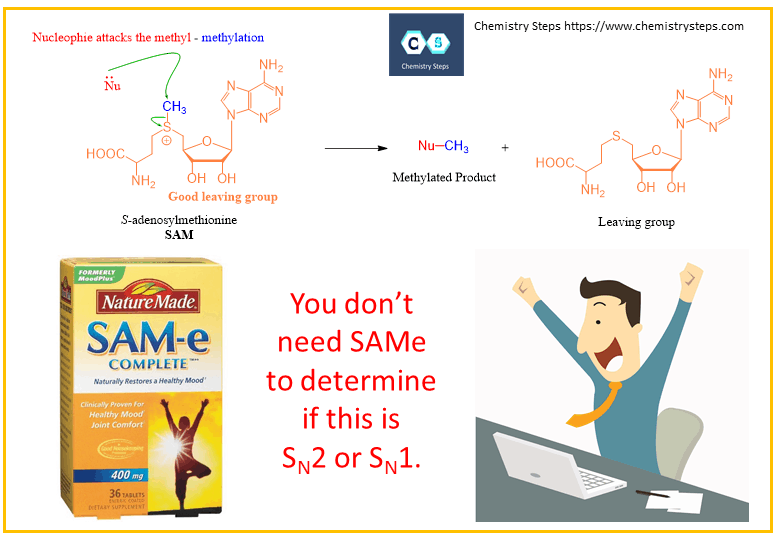Did you know that aside from bringing the stress to our life, nucleophilic substitution reactions work as antidepressant as well? ?
S-adenosylmethionine (SAM) a nutritional supplement sold under the trademark SAMe is used to battle depression and arthritis. Scientific studies have shown the evidence that methylation effects mood and it is in the basis of SAM’s mechanism for increasing the levels of so-called happiness hormones such as noradrenaline, dopamine and serotonin.
Methylation is an important reaction in laboratory synthesis of many drugs as well. It is a transfer of methyl group (CH3) commonly achieved by using methyl iodide (CH3I) because iodide is a good leaving group and allows the nucleophile to attack the methyl.
In biological systems, SAM is the equivalent of CH3I. It is soluble in the aqueous environment of the cell due to the presence of many polar functional groups. The nucleophile attacks the methyl group shown in blue and the rest of the molecule in orange, for this step, is simply a good leaving group since the sulfur goes from being positively charged to neutral form.
Does this nucleophilic substitution of SAMe go through SN1 or SN2 mechanism? What do you think?
Check our Student Help section for a lot of Nucleophilic Substitution and other practice problems!
